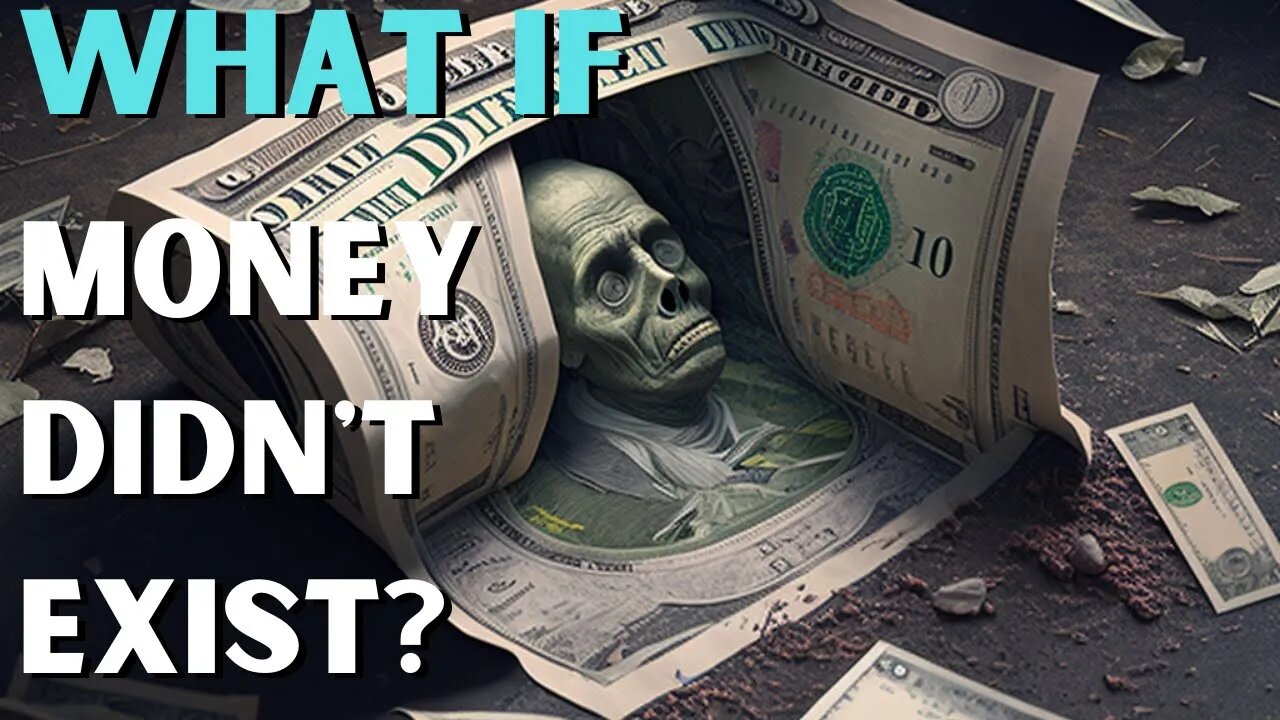Premium Only Content

What would life be like if money didn't exist?
The concept of money is deeply ingrained in our society and has become a fundamental aspect of our daily lives. It’s hard to imagine a world where money doesn’t exist, but what if we could explore this hypothetical scenario? What would life be like if money didn't exist?
Subscribe to Daily Dose Of Fact - https://bit.ly/2Z4b0m0
Firstly, the absence of money would mean that people would no longer be able to exchange goods and services for currency. Instead, individuals would have to rely on bartering and trading to acquire the goods and services they need. This would require a system of trust and mutual benefit, as people would need to be willing to trade goods and services that are of equal value.
In this new world, people would have to be self-sufficient and self-reliant. They would need to learn skills such as farming, sewing, and carpentry to create their own products and services. This would lead to a greater appreciation of the value of hard work, and people would take pride in the things they create and contribute to society.
Without money, there would no longer be an incentive to accumulate wealth or to compete with others for material possessions. Instead, people would focus on building relationships and communities based on mutual respect and support. This would lead to a more cooperative and interconnected society, where people work together towards common goals.
The absence of money would also have a significant impact on the way we view success and achievement. Instead of measuring success by the amount of money one has, success would be measured by the contributions one makes to society and the impact they have on others. This would create a greater sense of purpose and meaning in people's lives, and they would be motivated to make a positive difference in the world.
In a world without money, there would be no economic inequality, as everyone would have access to the same resources and opportunities. This would eliminate many of the social and political issues that arise from economic disparities, such as poverty and classism. People would be judged based on their character and contributions to society, rather than their financial status or social class.
However, the absence of money could also have some negative consequences. Without money, there would be no way to incentivize certain industries or to reward individuals for their hard work and innovation. This could lead to a lack of motivation and creativity, and certain industries may struggle to survive without the financial resources to sustain them.
In addition, the absence of money would not eliminate greed and selfishness, which are inherent traits in human nature. People may still try to hoard resources or exploit others for personal gain, which could lead to conflicts and power struggles.
Without money, people would need to develop alternative means of exchange, such as time banks or gift economies. In a time bank, individuals trade services with one another based on the amount of time it takes to complete the service. This system values all services equally, regardless of their monetary value. A gift economy, on the other hand, operates on the principle of giving and receiving without the expectation of receiving anything in return. This system relies on trust and reciprocity, where individuals give what they can and receive what they need.
In a world without money, there would also be a greater focus on environmental sustainability and conservation. Without the constant drive for economic growth and the need to consume more and more resources, people would be able to live more simply and sustainably. They would be more in tune with the natural world and the need to protect our planet for future generations.
The absence of money would also require a significant shift in the way we view work and leisure. Instead of working for money, people would need to find intrinsic motivation in their work, doing things that they find fulfilling and meaningful. This could lead to a more diverse range of careers and interests, as people would be free to pursue their passions without financial constraints.
Of course, the absence of money would not eliminate all of the problems that exist in our current society. There would still be issues related to power dynamics, conflict, and human nature. However, the absence of money would eliminate many of the problems related to economic inequality and the exploitation of resources for profit.
In conclusion
-
 9:03
9:03
MattMorseTV
16 hours ago $22.62 earnedTrump’s America First CALL TO ACTION.
30K71 -
 2:18:38
2:18:38
Side Scrollers Podcast
20 hours agoGTA 6 GETS WRECKED AFTER ANOTHER DELAY + India THREATENS YouTuber Over Video + More | Side Scrollers
124K15 -
 18:03
18:03
Nikko Ortiz
1 day agoEBT Meltdowns Are Insane...
10.9K34 -
 17:33
17:33
a12cat34dog
22 hours agoRUMBLE TAKEOVER @ DREAMHACK | VLOG | {HALLOWEEN 2025}
47.1K25 -
 10:48
10:48
GritsGG
16 hours agoWarzone Stadium Easter Egg! Unlock Grau Blueprint EASY!
16.9K2 -
 LIVE
LIVE
Lofi Girl
3 years agolofi hip hop radio 📚 - beats to relax/study to
556 watching -
 1:43:54
1:43:54
TruthStream with Joe and Scott
3 days agoStuey and Elisa V interview Joe and Scott Q, AI, Glutathione, Tylenol etc 11/5 #510
18.7K6 -
 29:15
29:15
BlabberingCollector
2 days agoHarry Potter X Fortnite, Fans Reee Over Trans Rights, NEW Audiobooks Are OUT, Wizarding Quick Hits
34.8K4 -
 1:20:42
1:20:42
The Connect: With Johnny Mitchell
6 days ago $16.62 earnedThe Truth Behind The U.S. Invasion Of Venezuela: Ed Calderon Exposes American Regime Change Secrets
44.5K28 -
 2:10:18
2:10:18
FreshandFit
8 hours agoAfter Hours w/ Girls
136K38